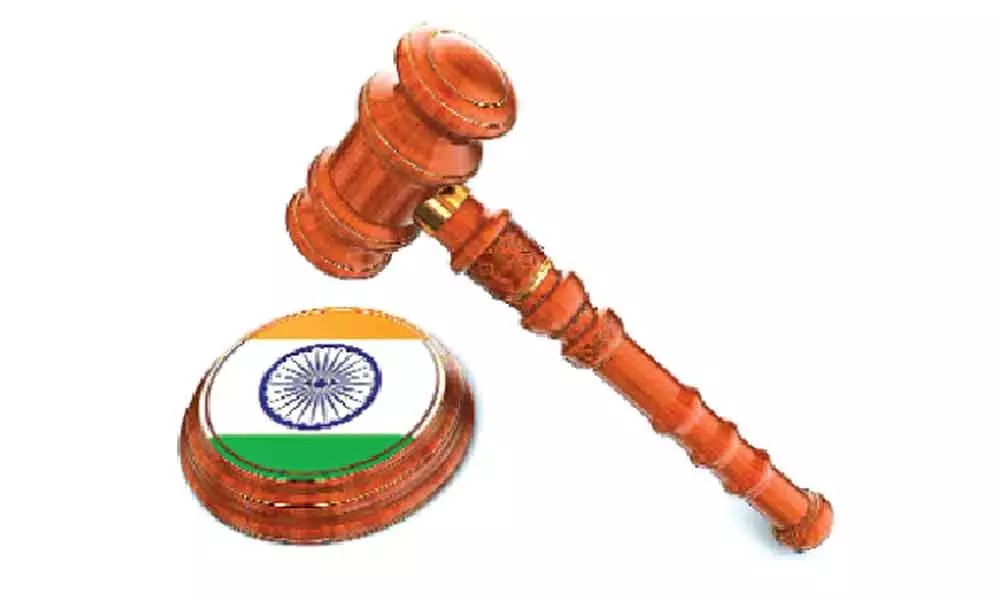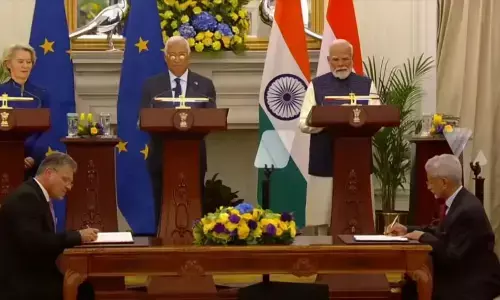Centre must stop desperate tax litigation

Centre must stop desperate tax litigation
Tax litigation seems to be the Achilles heel of Indian governments, cutting across party lines. It is understandable that an emerging economy should be concerned about raising revenues through taxation especially from multinationals which have the resources to pay their legitimate dues.
Tax litigation seems to be the Achilles heel of Indian governments, cutting across party lines. It is understandable that an emerging economy should be concerned about raising revenues through taxation especially from multinationals which have the resources to pay their legitimate dues. It is also understandable that the government uses its right to appeal in large cases so that the country's exchequer does not lose out in case of any faulty or misplaced judgments by lower levels of tribunals or courts. But when thousands of crores of rupees are locked up for years in endless litigation, it is time to call a halt to the tortuous process of appeals and counter-appeals. An effort was made several years ago when Pranab Mukherjee was Finance Minister, by limiting the number of appeals that could be made on disputes based on the value of the potential tax realization. These caps were further increased over the years but did not succeed in stemming the growth of disputes ending up in courts.
Finally, in March last year this government launched the Vivad se Vishwas to enable taxpayers caught up in this web to resolve their disputes. At the time it was launched, there were a whopping 5.10 lakh tax disputes pending in various courts. Nearly 25 per cent of the litigants have opted for the scheme in cases involving as much Rs 97,000 crores of revenue. While the success of the scheme must be lauded, it is clear the government must act on a war footing to reach some form of resolution on the rest of these cases. It has been pointed out that one of the reasons for the excessive delays in the Indian judicial system is the preponderance of cases filed by the government itself, of which are related to taxation.
The outlook became even more complex for tax litigation when the UPA government decided to enact a law that would allow retrospective taxation on cases going back as far as 1962. The change in law was prompted by a Supreme Court ruling in 2012 on a tax dispute with Vodafone which, it was alleged, had not paid the required taxes when the company bought over Hutchinson Essar's assets in this country. After the retrospective law was enacted, the government made fresh demands on Vodafone and other companies including Cairn Energy. The Vodafone issue went to an international tribunal last year and the ruling went in favour of the company. Even now the government has filed an appeal in the Singapore High Court. It must be recalled that the dispute began in 2007 when the acquisition took place. The tax demand which was originally Rs. 7,990 crores has now gone up Rs. 22,000 crores.
In the Cairn case too, the same international tribunal at The Hague has not only ruled in favour of the company but has levied a penalty of 1.2 billion dollars on this country. The tax demand made on the company was originally 2.74 billion dollars in 2006-07 at the time that Cairn UK transferred shares of Cairns India Holdings to Cairns India. Given the history of Indian governments failing to accept rulings of international tribunals, Cairn has filed suit in several countries including the US to ensure the ruling is enforced. It has even identified Indian assets abroad that can be attached in case the ruling is not accepted. In other words, the issue has become rather messy and certainly does not enhance the image of this country abroad. Currently, the Cairn Energy chief executive is holding meetings with government functionaries to try and resolve the dispute across the table rather than continuing with this messy affair.
In this context, it would be useful for revenue officials to remember that garnering taxes at the cost of losing investors' good will and valuable investments is counter-productive in the long run. The case of the Nokia plant in Tamil Nadu is a sad illustration of this attitude. The handset manufacturing plant along with ancillary units employed about 35,000 workers in its heyday. The crackdown by tax authorities on Nokia for a demand of about Rs. 7,000 crores in 2013 left most of these people jobless as the plant was shut down. The tax disputes resulted in it being left out of Microsoft's takeover of Nokia's global assets. The operations of the plant are reported to have been shifted to Vietnam. There is a finally a chance of reviving the fortunes of those living nearby since a Finnish equipment supplier to Apple has acquired the plant.
It is indeed strange that the government is pursing these cases so tenaciously now. It was assumed the NDA government would have a different approach from the UPA. This was underlined by comments of former Finance Minister the late Arun Jaitley in 2016 maintaining that the retrospective tax laws of the UPA government had hurt the country by scaring investors away. Instead, the NDA too has continued to pursue companies with the threat of retrospective tax demands. It is now high time for the government to cease these desperate efforts to garner revenues without taking a long term perspective on the need to lure investments to this country.
It should gracefully accept the decisions of the tribunals and move on to ensure that more steps can be taken ease the process of doing in this country both for domestic and foreign corporates.

















